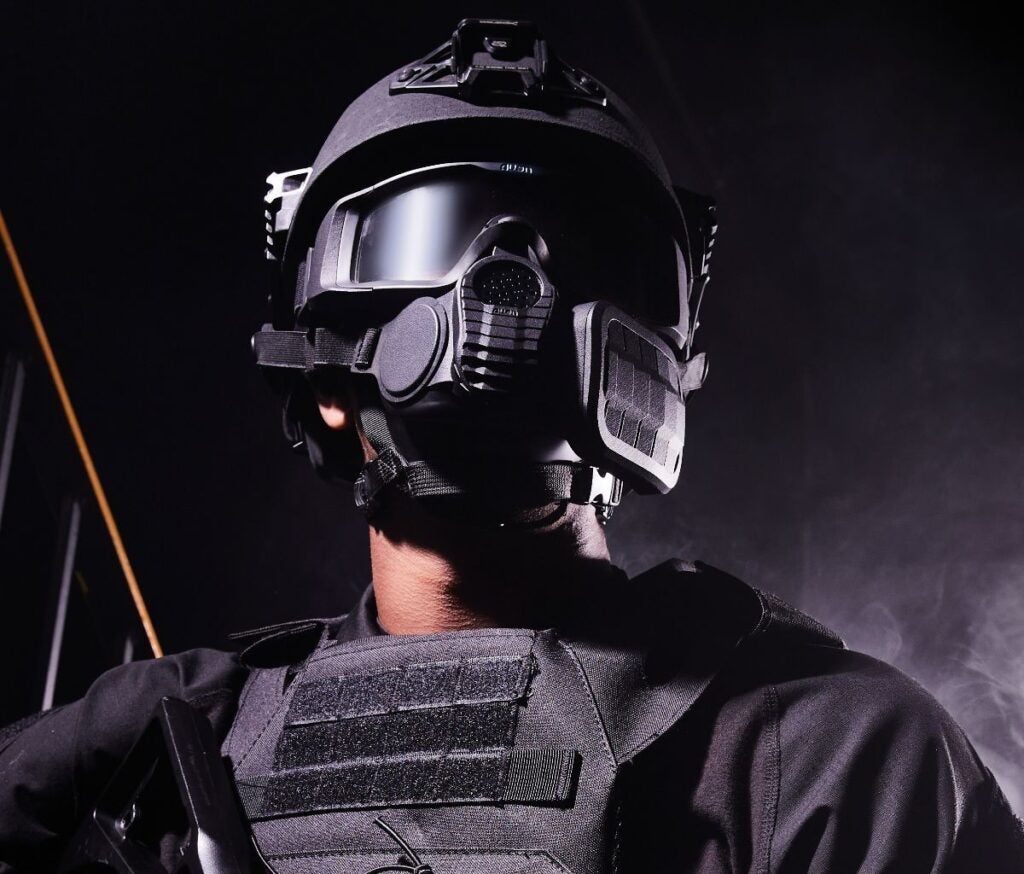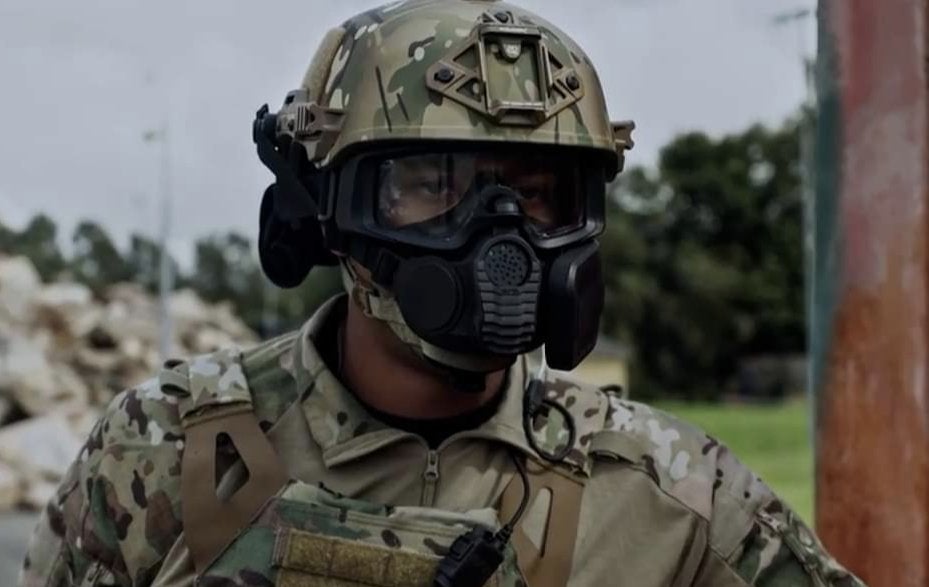Avon Protection Develop New Gas Mask For Potential British Army Use
British respirator manufacturer Avon Protection recently unveiled their latest lightweight Gas Mask in an attempt to make bulky respirators a thing of the past for British servicemen and women. At this year’s DSEI conference in London, Avon President Steve Elwell told press that:
“Today’s respiratory protection is relatively claustrophobic – you’ve got rubber very close to the face, you’re in an enclosed environment – so, in the future what we are looking at is much more modular systems.”
According to Avon the Modular Integrated Tactical Respirator concept (MiTR) is a low-burden, high-performance respiratory protection system. The mask also has a separate goggle system that is smaller than more traditional gas masks. The new system is being brought to market following recent advances in technology by Avon.
The mask is currently in its final stages of development and could be available for British Army use in 2024. The current issue General Service Respirator used by all British armed forces personnel, has been in service since 2010. It was originally produced by Scott Safety until Avon took over the contract in 2019.

The MiTR system has been developed by Avon in response to the ongoing changes in world security and in the wake of 2020 COVID pandemic. Elwell noted:
“The threat of large-scale chemical attacks is not such an issue anymore, but small-scale, the availability of industrial chemicals through bad actors, bad state actors, allows the proliferation of chemical and biological weapons. Of course, [during] the recent Covid pandemic, you started to see national shortages of PPE equipment, that biological threat, leakage from laboratories, or anything like that, providing that respiratory protection enables people to operate safely in those sorts of environments.”
Avon has been producing respiratory equipment for the British Army since the First World War and produced both the S6 NBC and S10 CBRN respirators for the Army during the Cold War period. At the same time the UK has also announced a new £88 million project to acquire new equipment to detect, identify and monitor the presence of toxic chemicals and chemicals warfare agents. The new sensor systems are to be operational by 2028.

